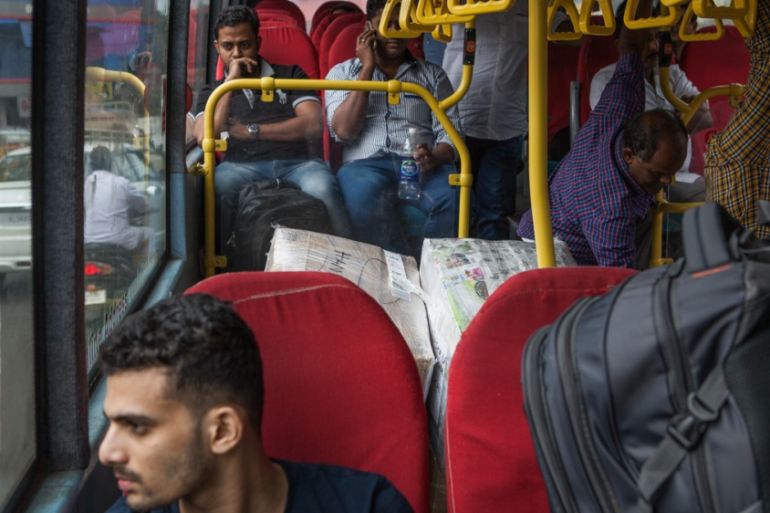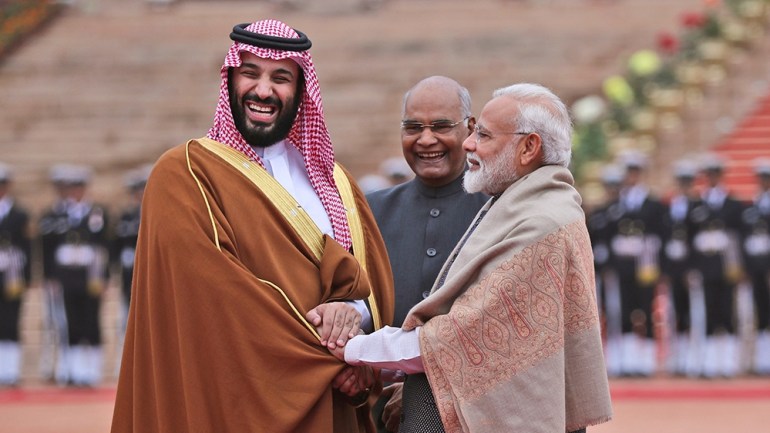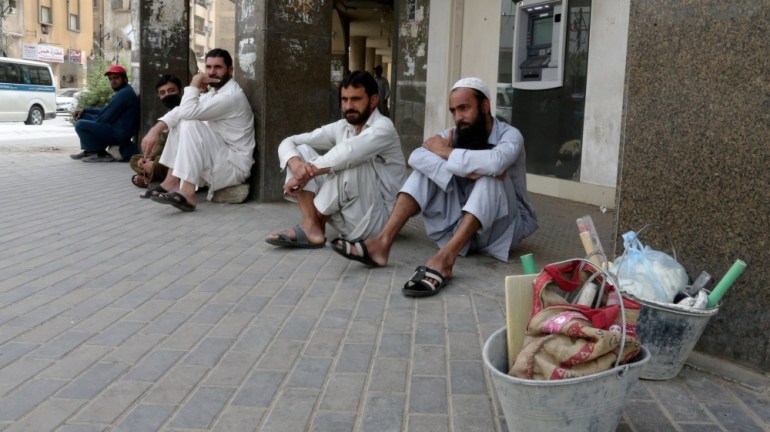Locked-out Indians angry over vaccine export to Saudi Arabia
Indian workers hit hardest by five-month flight ban they say has upended their lives, dividing families and costing jobs and business contracts.

India’s decision to export millions of coronavirus vaccine doses to Saudi Arabia has rankled its vast expatriate community, locked out by the kingdom’s months-long flight ban that sparked tense diplomatic wrangling.
The plight of Indian workers, who make up the kingdom’s biggest expatriate community, underscores the turmoil caused by the tightening coronavirus restrictions, as infections surge amid a stumbling vaccination drive.
Keep reading
list of 4 itemsIndian celebrities back gov’t on protests amid global criticism
India equates Red Fort chaos with Capitol riots after US remarks
January 26: The day Indians reclaimed their republic
This week, Saudi Arabia suspended entry from 20 countries – from the neighbouring United Arab Emirates to the United States and the United Kingdom – and halted entertainment events, as it doubles down to stem the spread of the virus.
But Indian workers have been hit the hardest by a nearly five-month flight ban they say has upended their lives, dividing families and costing jobs and business contracts.
Last September, Saudi Arabia, which hosts about 2.6 million Indians, barred flights from India, Brazil and Argentina, leaving hundreds of thousands of Indians locked out of the country.

The social media accounts of Indian diplomatic missions in Saudi Arabia have been inundated with angry and desperate messages from workers, with many questioning New Delhi’s decision to export the vaccine before the crisis is resolved.
“India should not offer the vaccine to Saudi Arabia because [the kingdom] has barred Indian flights, jeopardising the livelihoods of hundreds of thousands of workers,” one wrote to the Indian embassy in Riyadh on Twitter.
The sentiment was echoed by a young Indian engineer who has been locked out since he left the kingdom last summer to visit his family in the northern state of Uttar Pradesh.
“Day and night we tweet to [authorities] begging for help, but all India cares about is selling vaccines,” he told the AFP news agency, requesting his name be withheld.
Indian officials, however, are careful not to equate the issues, as India – known as the world’s pharmacy – steps up worldwide shipments of the vaccine developed by the British-Swedish firm AstraZeneca with Oxford University as a form of “vaccine diplomacy”.
But the flight ban has become a “big irritant” for New Delhi in otherwise upbeat ties between the allies, two sources privy to “blunt” discussions between officials on both sides told the AFP.
“India’s gesture to not link vaccines to the flight ban shows the two countries are strategic partners and the Saudis need to be considerate to reduce the suffering of the Indian workforce,” one of the sources said.
“But so far, there has been no comforting signal from Saudi.”
In private meetings with Indian officials, authorities in Riyadh insist the ban is based on “health data”, the sources said.
But Indian officials have fruitlessly pointed out that active cases in their country have steadily declined, while, until this week, the kingdom permitted flights from other worse-affected nations, they added.
Some workers are questioning whether keeping them out is a deliberate strategy to reduce the expatriate workforce, as the economy reels and the kingdom pushes an aggressive “Saudisation” drive to boost employment for nationals.
“Is locking us out a way to get rid of us?” the engineer asked.
Saudi authorities did not respond to a request for comment.

India is ready to export to Saudi Arabia 10 million doses of the AstraZeneca-Oxford vaccine produced by the Serum Institute of India, New Delhi’s envoy to Riyadh wrote recently in the Arab News newspaper.
The doses are badly needed amid slow deliveries of the Pfizer-BioNTech vaccine, which has held back Saudi Arabia’s inoculation drive and delayed the second dose for many.
While Indian vaccine shipments have reached other Gulf states, including the UAE, they are yet to land in Saudi Arabia.
The delay occurred after the Saudi Food and Drug Authority (SFDA) last month requested a physical “inspection” of the Serum Institute of India’s facility and was rebuffed by its chief executive, Adar Poonawala, the two sources said.
“Indian officials conveyed to Saudi the drug was first approved by Britain and then by India, and the Serum Institute is too busy to entertain requests for a physical inspection,” one of the sources added.
“But the deliveries are expected to proceed soon,” after the SFDA agreed to virtual interaction with the institute. The institute did not respond to AFP’s request for comment.
However, there is still no resolution in sight for Indian workers.
After the flight ban, well-heeled Indians could enter the kingdom via a third country after a two-week, self-paid quarantine there – an option most blue-collar workers cannot afford.
But even that window closed on Wednesday after India was named among the 20 countries from which entry is barred.
“The problem just got worse for Indian workers,” the source said.